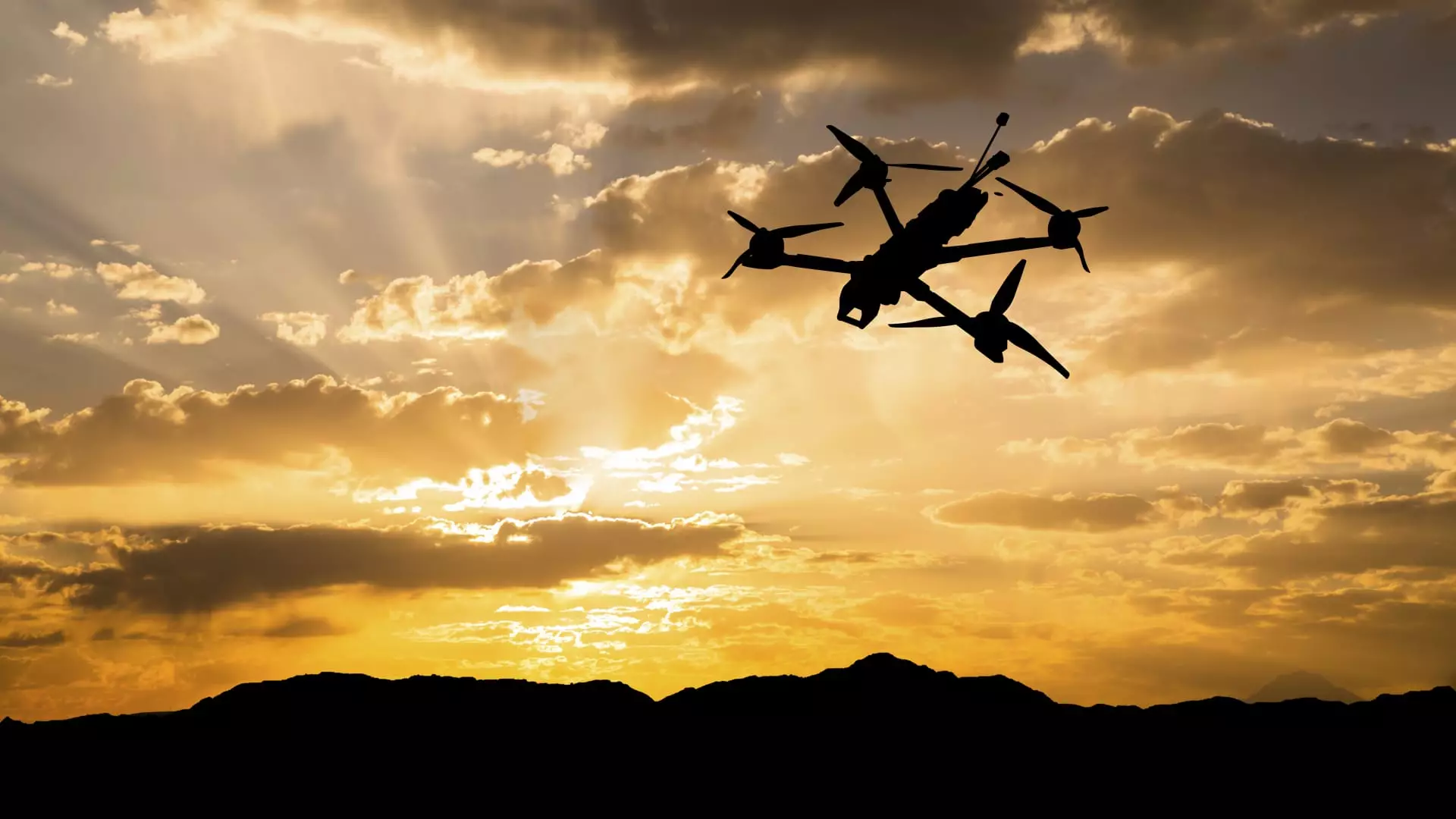A recent surge in drone stocks signals a renewed optimism among retail investors, primarily driven by a high-profile collaboration between Palantir Technologies and Red Cat Holdings. This partnership, which aims to fuse advanced visual navigation software with drone technology, has generated significant market interest. Red Cat’s shares demonstrated a remarkable increase of over 19% following the announcement, highlighting a growing confidence in the sector’s potential. According to Quiver Quantitative, Red Cat (RCAT) emerged as a trending topic on Reddit’s WallStreetBets, showcasing a staggering 1,625% uptick in mentions. Similar spikes were reflected in the stocks of other companies like Unusual Machines, Kratos Defense and Security Solutions, and Aerovironment, suggesting a widespread bullish sentiment for the drone industry.
Simultaneously, a series of unexplained drone sightings over New Jersey has added another layer of intrigue around the industry. While the FBI has asserted that there is no substantial evidence these drones pose a threat to national security, the frequency of such sightings has nevertheless reignited a public interest in drone capabilities and applications. Analysts suggest that increasing local incidences of drone sightings could drive demand for both commercial and governmental drone solutions, emphasizing the importance of effective regulatory frameworks to harness their potential without compromising safety.
As the political landscape evolves, so too does the outlook for drone technology. Speculation surrounding the incoming Biden administration’s policies has led many industry observers to anticipate an influx of funding for U.S. made drones, especially with influential figures like Tesla CEO Elon Musk entering the conversation. Such developments emphasize a possible shift towards embracing drone technology for various government applications, including public safety measures. According to William Blair analyst Louie DiPalma, local and state governments could increase their investments in counter-drone technology to secure public venues against potential threats, suggesting potential growth for companies operating within this sphere.
The legislative interest in the drone sector is further illustrated by the recently passed National Defense Bill in the House, which poses significant implications for foreign manufacturers. A looming prohibition of DJI drones, a prominent China-based manufacturer, highlights a trend aimed at bolstering domestic production while limiting reliance on foreign technology. Such measures could create an environment ripe for innovation and expansion within the U.S. drone market, as stakeholders seek to fill the gap left by foreign competitors.
The intersection of retail enthusiasm, mysterious sightings, shifting political tides, and legislative initiatives are coalescing to create an inviting atmosphere for growth within the drone sector. As companies navigate these dynamic developments, the potential for drones to become an integral part of both everyday life and national security measures appears increasingly tangible. Retail investors, in particular, have a unique opportunity to capitalize on this evolving landscape, underpinned by a growing recognition of the essential role drones could play in the future.

